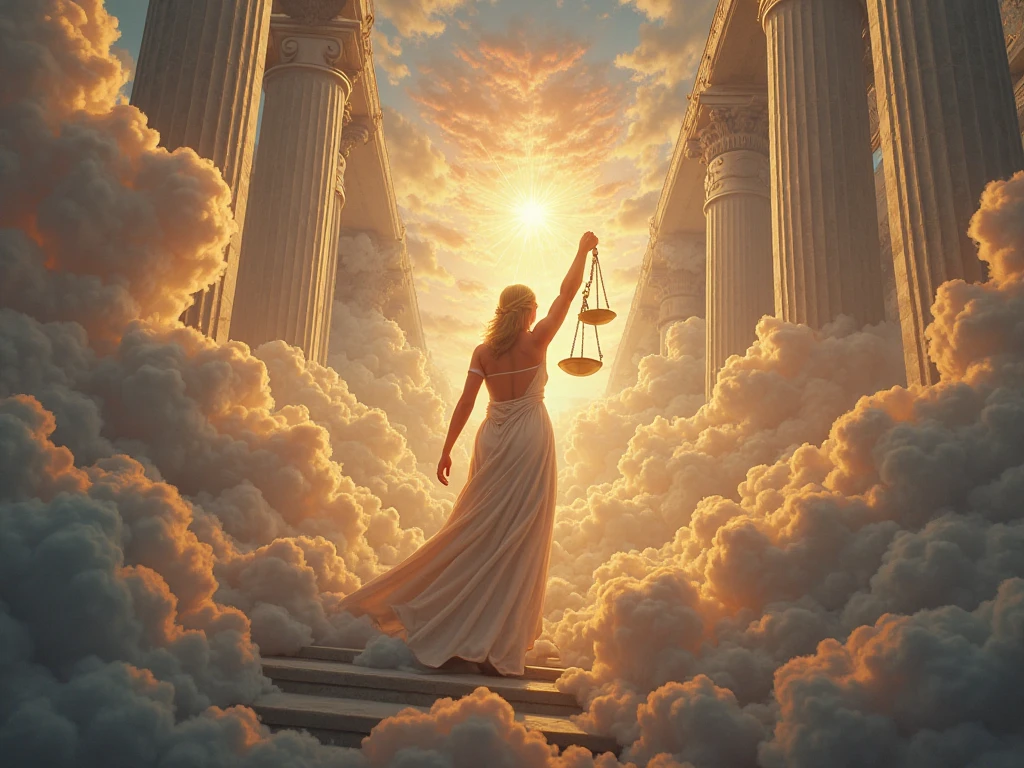On May 3, 1791, the Polish–Lithuanian Commonwealth, amid the echoing murmur of Enlightenment ideas and the clamor of a restless society, unveiled a document that would forever alter the course of political history. The Constitution of May 3, heralded as one of the first modern constitutions in Europe, emerged as a beacon of hope and progress—a document not only meant to reform a nation but also to inspire future generations toward justice, equality, and civic responsibility.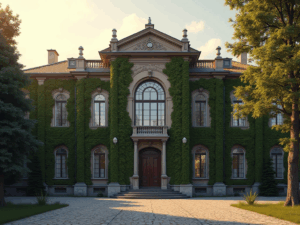
In a time when arbitrary power and ancient privileges reigned, the visionaries of the Great Sejm risked much by daring to dream of a reformed state where every citizen’s voice would matter. Today, the spirit of that revolutionary document finds resonance in the everyday lives of individuals who, like modern-day heroes, seek to bring integrity and purpose into their personal and professional worlds.
## Part I: The Birth of a Revolutionary Vision
In the late 18th century, the Polish–Lithuanian Commonwealth was a vast and diverse realm—a mosaic of cultures, ideas, and aspirations. Yet it was also a land burdened by the traditions of feudal privilege and the stranglehold of powerful magnates. The nation’s future seemed to teeter on the brink of disintegration, weighed down by internal divisions and external pressures. Political thinkers and reformers found themselves in an arduous struggle against centuries-old customs, advocating for reason, liberty, and progress.
Against this turbulent backdrop, the assembled parliament of the Great Sejm in Warsaw became the crucible for transformation. The legislators, inspired by Enlightenment ideals, debated fervently about reforming the very structure of the state. They envisioned a nation where the laws would be the supreme guide, where a balanced system of government would ensure that no single individual or group could ever again dominate the fate of many. Their discussions were long and, at times, contentious, yet every argument, every dissenting voice contributed to the forging of a document that was as much a moral manifesto as it was a legal framework.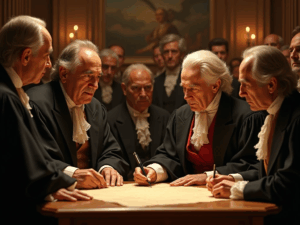
Among these reformists were figures whose names later became synonymous with courage and wisdom. Visionaries like Hugo Kołłątaj, Ignacy Potocki, and King Stanisław August Poniatowski championed the cause of a reformed state—a state grounded in the principles of popular sovereignty, liberty, and equality. For them, change was not an abstract idea but a vital necessity. They believed that only by embracing radical reform could the people reclaim their dignity and stand united against the forces of tyranny.
The deliberations of the Great Sejm were more than a political maneuver; they were the deliberate, brave steps of a people daring to redefine their destiny. In the midst of heated debates, the idea of a constitution—a definitive legal order that would bind the citizens together under a shared ideal—began to crystallize. This was not merely the drafting of laws; it was the crafting of a living promise, an assurance to future generations that fairness and justice would prevail over the caprice of the aristocracy.
## Part II: The Adoption of the Constitution of May 3, 1791
After weeks of intense debate, consultation, and compromise, the moment of destiny arrived. On that historic day, the new Constitution was proclaimed—a document that would forever alter the Polish political landscape. Its provisions were comprehensive and forward-thinking. It limited the power of the monarchy, established a clear separation of powers, and granted unprecedented rights to the citizens, ensuring that the state could no longer be a tool for the exploitation of the many by the few.
The Constitution was a daring blueprint for modern governance. It introduced reforms that touched every aspect of civic life. For the first time, the rights of the common citizen were enshrined in law—freedoms that had long been the exclusive reserve of the powerful. The document called for an accountable government guided by rational principles, aiming to abolish the corrupt practices of old and replace them with a system based on equality, transparency, and mutual respect.
In these hallowed halls, the spirit of democratic renewal was not just spoken of—it was etched into every clause and punctuation mark of the document. Although the tumult of history would eventually shatter this nascent promise, the Constitution’s ideals would travel far beyond the confines of its immediate context, leaving an indelible impact on political thought across Europe and the world.
Yet, even as the Constitution was celebrated as a pinnacle of human progress, it also sowed the seeds of inevitable conflict. The entrenched power of the nobility, unwilling to relinquish old privileges, and the relentless pressures from neighboring empires would soon test the strength and durability of the reform. The dream encapsulated in that document was fragile—its promises vulnerable to the fickle winds of geopolitics and the harsh realities of war.
## Part III: The Ripple Effect Through Turbulent Centuries
The years that followed the adoption of the Constitution were fraught with both hope and sorrow. While the document ignited a burst of patriotic fervor and set the intellectual underpinnings for modern constitutional governance, its lifespan as the guiding law of the Commonwealth was tragically short. Internal strife, external invasions, and political subterfuge eventually led to partitions and the loss of sovereignty. Yet, even as the Polish–Lithuanian Commonwealth crumbled under the weight of abuse and aggression, the key ideas of May 3 lived on.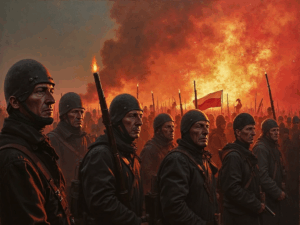
In late generations, Polish patriots and thinkers would return to the Constitution as a symbol of resilience and righteous ambition—a timeless reminder that the struggle for liberty and justice is eternal. Its influence seeped into subsequent reforms not just in Poland but also in other parts of Europe where people yearned for self‐determination and a fair, accountable government. The legacy of May 3 became a beacon, guiding those willing to fight for their rights in even the most oppressive circumstances.
As the years passed and new generations took up the mantle of patriotism, the May 3 Constitution emerged not merely as a historical artifact, but as a living ideal—one that would inspire movements for freedom and reform long into the future. Its spirit, though tested by time and conflict, became interwoven with the cultural and national identity of Poland. Even during the darkest hours of occupation and despair, citizens found solace and strength in remembering that their ancestors had dared to dream of a more just world.
## Part IV: A Modern Awakening—Marek’s Journey
Fast forward over two centuries to a time when the clamor of modern life and the rapid pace of technological progress can make the lessons of history feel distant. In a bustling metropolitan center—whether in Warsaw, New York, or anywhere in the world—a young man named Marek struggles with the challenges of contemporary living. Like many in our fast-paced era, Marek finds himself caught in the relentless cycles of a demanding career, societal pressures, and a pervasive sense of disconnection from the deeper values of community and personal integrity.
One rainy afternoon, while seeking refuge in the cozy environs of an old city library, Marek stumbles upon a weathered book chronicling the history of the Polish Constitution of May 3, 1791. As he turns the fragile pages, he becomes enveloped in the stirring narrative of a time when ordinary citizens and enlightened leaders dared to reshape the destiny of a nation. Captivated by the story of noble debates, courageous reform, and the unwavering commitment to justice, Marek is struck by a profound realization: the principles enshrined in that historic document are not relics of a bygone age but active forces capable of transforming his very life.
For Marek, the revelation comes as both a personal and civic awakening. In the hectic swirl of everyday life—a maze of deadlines, corporate meetings, and the endless pursuit of success—he begins to perceive that the core values of fairness, accountability, and collective responsibility are timeless. Inspired by the courage of those who dared to challenge entrenched power, Marek decides that he too must embrace the legacy of May 3 in his own way. He realizes that true progress in any era begins with self-transformation: by embodying integrity and working diligently toward the betterment of one’s community, a single voice can indeed catalyze lasting change.
## Part V: Integrating History with Personal Transformation
Motivated by his newfound understanding, Marek embarks on a journey to recalibrate his life. He starts small—by actively engaging in discussions at his workplace and advocating for transparent practices and ethical leadership. He organizes informal forums where colleagues share ideas about innovation and fairness; these gatherings, though modest, spark a creative dialogue that stretches far beyond the confines of the office. Marek’s initiatives gradually blossom into a network of civic-minded individuals committed to nurturing a culture of integrity and accountability.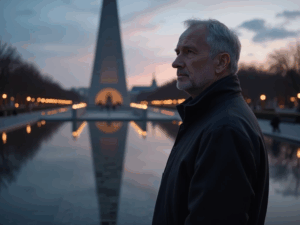
Away from the corporate world, Marek rediscovers the joy of community participation. Weekend mornings, once lost to routine and exhaustion, are now dedicated to volunteering at a local cultural center. There, amid the vibrant interplay of voices from different generations and backgrounds, he witnesses firsthand the transformative power of communal solidarity. Discussions about the May 3 Constitution become a regular theme, serving as a catalyst that reminds everyone present that rights and responsibilities, too, are a shared inheritance—one that must be constantly nurtured and defended.
In these gatherings, Marek finds a renewed sense of purpose. The ideological legacy of the May 3 Constitution—its insistence on justice, equality, and the sanctity of the common good—offers him a roadmap for personal and societal renewal. It teaches him that challenges, whether in the halls of government or the boardrooms of modern industry, can be overcome through collective action and unwavering integrity. The lessons of the past thus illuminate his path forward, encouraging him to stand firm in his convictions even when the current might pull him in the opposite direction.
As Marek deepens his involvement in local civic affairs, he begins to perceive a profound connection between personal authenticity and societal progress. Every time he chooses transparency over complacency, every time he raises his voice for fairness, he is, in a sense, reviving the revolutionary spirit of those long-ago reformers. The simple, yet powerful truth emerges: the power to shape one’s destiny lies not in grand, isolated gestures but in the cumulative effect of everyday choices fortified by enduring principles.
Late one evening, while reflecting on his journey atop a quiet city balcony, Marek is filled with gratitude. The soft lights of distant skyscrapers mingle with the velvety darkness of the night, and he thinks back to that fateful day in 1791—a day that continues to teach him that every generation faces its own battles for justice and self-determination. In that moment of serene introspection, he understands that the legacy of the May 3 Constitution is not confined to textbooks or memorials; it is an ever-present call to arms in the realm of one’s conscience.
This transformative journey does not end with Marek alone. His personal metamorphosis kindles a spark within his entire community. Neighbors, friends, and colleagues begin to adopt these values, realizing that the power to change the world is rooted in the strength of each individual act of integrity. Small community forums give way to broader movements, as more people rally for responsible governance, clarity in public decision‐making, and, above all, the courage to uphold the fundamental rights that define human dignity.
## Part VI: The Enduring Legacy and Its Personal Resonance
As the seasons change, Marek’s journey becomes a microcosm of a larger, timeless truth: history’s most profound lessons are not static relics but living imperatives that guide us toward a better future. The May 3 Constitution, though conceived in an era far removed from today’s technological marvels, still resonates in every act of ethical leadership, every instance of collective responsibility, and every personal decision that seeks to create a more just world.
Marek’s life, once a cacophony of routine and disconnection, has been transformed by his embrace of principles that transcend time. In every decision made at work, every conversation held in community forums, and every quiet moment of inner reflection, he finds strength in the legacy of those who dared to challenge the status quo in 1791. The transformation is subtle yet profound—a journey from individual ambition to shared purpose, from personal gain to societal progress.
For Marek, and for countless others who feel adrift in today’s complex world, the Constitution of May 3 stands as a steadfast reminder that every citizen possesses the power to shape destiny. It serves as a clarion call: that in the pursuit of truth, justice, and equality, the seeds of greatness are sown not only in grand revolutions but in everyday choices—choices that transform not only a single life, but entire communities.
In drawing inspiration from this historic moment, Marek has come to understand that our modern challenges—be they ethical dilemmas at work, the corrosive effects of bureaucratic indifference, or the perennial struggle between individual freedom and collective responsibility—are not insurmountable. They are, in fact, opportunities waiting to be seized by those willing to listen to the lessons of the past and apply them creatively to the present.
On a crisp morning, as the sun breaks through the soft haze of dawn and the city awakens, Marek finds himself once again on that same quiet balcony. Looking out over the urban sprawl, he contemplates the journey that began centuries ago and continues to unfold in the vibrant tapestry of modern life. In that light, he sees not only the scars of history but also the promise of renewal—a promise that every individual, when guided by the principles of integrity and courage, can forge a future defined by hope, fairness, and genuine change.
## Epilogue: Lighting the Path Forward
The saga of May 3, 1791 is more than a chapter in a history book—it is a vivid testament to the transformative power of ideas. The brave souls of the Great Sejm risked everything to craft a vision of governance that prized the rights and dignity of every citizen. Their courage, though born out of the struggles of an era long past, continues to inspire countless individuals today.
For Marek, the lessons of that distant time have kindled a personal revolution. By embracing the values of fairness, accountability, and community service, he has not only reshaped his own life but also sparked a ripple of change in his environment. His journey affirms that the power to create meaningful progress lies within each of us. It is a call to look within, to stand up for what is right, and to contribute to a legacy that transcends time.
As you close this narrative, consider the ways in which history echoes in your daily life. Ask yourself: How can the courage and conviction of the past guide my actions today? In the face of personal challenges, can I find the strength to stand for my beliefs, to advocate for fairness, and to join with others in the pursuit of a just society? The Constitution of May 3 reminds us that even the most significant transformations begin with a single act of resolve—a quiet decision to live with integrity, to believe in the possibility of progress, and to extend that belief into every sphere of life.
May the legacy of that transformative day continue to illuminate your path. Embrace the enduring truths of history, and let them empower you to shape a future that is as hopeful, as inclusive, and as resilient as the ideals cherished over two centuries ago.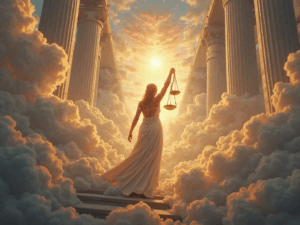
*In this story, history is not a distant memory but an active, living guide—a beacon that offers direction, inspiration, and a challenge to each of us. Whether you are a community leader, a professional striving for ethical excellence, or simply an individual seeking personal growth, remember that the spirit of May 3, 1791 lives on in every courageous act and every principled decision. Let its brilliance light your way, as it did for those who dared to write a new chapter in the annals of freedom and justice.*
This narrative—spanning the revolutionary birth of the Polish Constitution and its transformative effect on a modern soul—demonstrates how lessons from the past can be seamlessly woven into the fabric of everyday life. May you find in Marek’s journey a mirror for your own, and may the perpetual call for integrity continue to inspire and guide you through every challenge and triumph.

